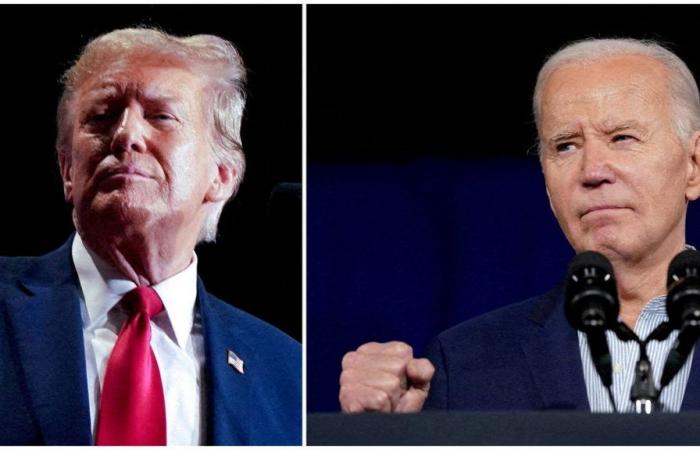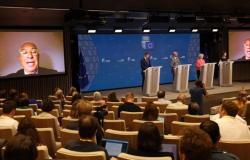In this regard, President Biden decided in the middle of the month to increase tariffs on imports of products from China worth $18 billion, while Trump has already expressed his intention to establish a universal tariff that could start at 10%, although It plans to raise it in the case of China to 60%.
For Mali Chivakul, an economist at the Swiss bank J. Safra Sarasin, both candidates are concerned about the threat posed by China to national security but clarifies that their political strategies are different: Trump’s proposal is unilateral, more forceful and broad, and prioritizes Addressing the problems of the American manufacturing industry, however, Biden is focusing on a growing list of technologies and enlisting the support of partners around the world, as he leans more toward addressing national security issues.
Remember that Trump, when he was president, resorted to imposing tariffs on a wide range of goods and a trade agreement with China to correct the size of bilateral trade deficits. Furthermore, in his last campaign he promised higher tariffs and also suggested that he would revoke China’s permanent normal trade relations (PNTR) status, which would mean that China would be relegated to a group of countries subject to higher tariffs. high (along with North Korea, Cuba, Russia and Belarus. So without PNTR status, Chinese products would face tariffs of up to 60%.
In Chivakul’s view, Trump would also ban Chinese imports with a proposed four-year plan to phase out all Chinese imports of essential goods, while Biden aims to reduce risks and apply an industrial policy to sectors important for national security reasons. , which would affect key industries such as clean energy, digital infrastructure and advanced biotechnologies, which must be protected and expanded in the US and with partners around the world.
Another thing that Biden did was limit US foreign investment in certain technological sectors in China and introduce national security priorities in the Committee on Foreign Investment in the US, so that his measures, unlike Trump’s, are not unilateral.
It is clear that both political leaders seek to protect national production with their measures, although the restrictions on China have other effects that are often not taken into account, such as the fact that goods with tariffs have been clearly harmed by deviations from the trade, since the United States has imported more from the rest of the world, warns the Swiss bank economist.
Now, while the threat of revocation of PNTR status is somewhat likely, what would be the impact for Chivakul: a 60% tariff and a ban on imports would clearly be a blow to China, but an increase in tariffs and the uncertainty of trade policy would also have negative consequences for the US economy (in general, import tariffs persistently depress imports, exports and domestic investment, especially with retaliation from China), and another effect is that short-term inflation would increase, while the trade balance may improve, but at the cost of a compression of domestic demand.
According to the US-China Business Council, together with the global consulting firm Oxford Economics, they estimated that a repeal of the PNTR status and retaliation from China could cost the US a cumulative GDP loss of almost $2 trillion over 5 years, the loss of jobs could reach 800,000 and initially inflation would also increase by 1.2 percentage points.
In addition, the tariff shock would also affect financial markets, since the dollar is likely to appreciate due to expectations that price levels will increase, which would lead the Federal Reserve (Fed) to raise interest rates, Therefore, lower growth prospects would also dampen equities.
For the Swiss bank, a universal 10% tariff is more likely to be applied, which would imply lower imports, exports and investments, higher prices and appreciation of the dollar. It could also have the intended effect of increasing foreign direct investment (FDI) into the US, since tariffs are imposed universally and nearshoring would not be useful in this case. So there may not be a clear and immediate impact of Biden’s policy.






